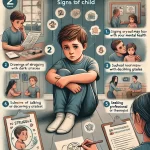Are You in a Healthy or Abusive Relationship? Recognizing the Signs Before It’s Too Late
Many people assume that abuse in relationships is always physical, but abuse can also be emotional, financial, psychological, or verbal—and it can happen to anyone, regardless of gender.
In South Africa, relationship abuse is a serious issue, yet many victims don’t realize they’re in an abusive relationship until years later. This post will help you identify the signs of a healthy vs. abusive relationship and understand what to do if you find yourself in an unhealthy dynamic.
🔥 Why People Don’t Always Realize They’re in an Abusive Relationship
Abuse doesn’t always start with violence or extreme control—it often starts subtly and gets worse over time. Many people stay in toxic relationships because:
✔ They don’t recognize non-physical abuse (manipulation, control, emotional neglect, financial dependence).
✔ They believe love should be “hard” and that relationships require endurance, even at the cost of their well-being.
✔ They feel guilty for wanting to leave and are manipulated into thinking the problem is their fault.
✔ They think abuse only happens to women—but men, LGBTQ+ individuals, and people in any relationship dynamic can experience abuse.
✔ Abusers often apologize or show brief kindness, making victims believe things will improve.
🚦 Healthy vs. Abusive Relationship: Key Signs
✅ Healthy Relationship
💙 Mutual respect, trust, and emotional safety.
💙 Both partners feel heard and valued.
💙 Disagreements are handled with open communication, not fear.
💙 Personal space, independence, and friendships are respected.
💙 No one is afraid to express their feelings or opinions.
🚨 Abusive Relationship
❌ Control & Manipulation – Your partner makes all the decisions, controls finances, or isolates you from friends/family.
❌ Constant Criticism & Gaslighting – They belittle you, twist your words, or make you question your reality.
❌ Fear & Walking on Eggshells – You’re afraid of their reactions or feel you need to “keep the peace” at all costs.
❌ Emotional & Verbal Abuse – Name-calling, silent treatment, threats, or guilt-tripping.
❌ Blame-Shifting – They never take responsibility and always make you feel like you’re the problem.
❌ Love-Bombing & Cycles of Abuse – Periods of extreme affection followed by emotional neglect or mistreatment.
💔 Types of Abuse People Often Ignore
🔹 Emotional & Psychological Abuse – Constant criticism, threats, silent treatment, and mind games that make you question your worth.
🔹 Financial Abuse – Controlling money, preventing financial independence, or forcing financial dependency.
🔹 Verbal Abuse – Insults, shouting, degrading language, or using words to humiliate and control.
🔹 Sexual Coercion & Manipulation – Pressuring a partner into sex or intimacy when they’re uncomfortable.
🔹 Gaslighting – Making you feel “crazy” or invalidating your experiences to make you doubt yourself.
👨🦰 Men Can Be Victims of Abuse Too
Abuse is often seen as something that only affects women, but many men in South Africa experience abuse and feel unable to speak out.
✔ Emotional Abuse: Many men face constant belittling, manipulation, or being made to feel worthless by their partners.
✔ Physical Abuse: While less common, some men experience physical violence but hesitate to report it due to societal stigma.
✔ Financial Abuse: Some men are financially controlled, with partners restricting access to money or forcing financial dependence.
✔ Fear of Speaking Out: Many men feel ashamed or are afraid they won’t be believed if they report abuse. The stigma of “men being strong” prevents them from seeking help.
✔ Legal & Custody Battles: Some abusive partners use children as leverage, manipulating the legal system to control or punish men.
✔ Social Isolation: Men who speak out about abuse often face ridicule or are not taken seriously, leading them to suffer in silence.
Abuse doesn’t discriminate, and men deserve the same protection, support, and validation as anyone else. If you are a man experiencing abuse, you are not alone, and there are resources available to help you.
🛑 Why It’s Hard to Leave an Abusive Relationship
Many people struggle to leave toxic relationships because:
✔ They still love their partner and hope things will change.
✔ Fear of being alone or believing no one else will love them.
✔ Financial or emotional dependence on the abuser.
✔ Manipulation—abusers often make their victims feel guilty for wanting to leave.
✔ Cultural and societal pressure—South Africans are often told to “make it work” no matter what.
✔ Abusers break down self-esteem over time, making victims believe they don’t deserve better or that no one else will want them.
🚀 How to Get Help & Rebuild After Abuse
If you’re in an abusive relationship, you are not alone, and support is available.
📞 GBV Command Centre (24/7 Helpline): 0800 428 428
📞 Stop Gender Violence Helpline: 0800 150 150
📞 SAPS Crime Stop: 08600 10111
🏠 Thuthuzela Care Centres (TCCs): Support for survivors of abuse and violence.
💙 Therapy & Professional Support: A psychologist can help you process emotional trauma, rebuild confidence, and make empowered choices.
💡 Final Thought: Love Should Never Hurt
✔ You deserve a relationship built on respect, trust, and kindness.
✔ Abuse is not just physical—any form of control, fear, or manipulation is unhealthy.
✔ If you’re questioning your relationship, reach out for support—help is available.
💙 If you need guidance, speaking to a psychologist can help you regain clarity and make the best decision for your well-being.




